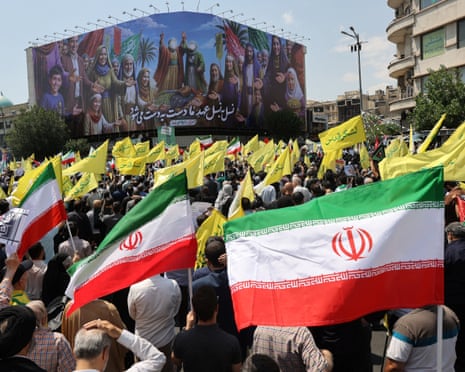Israel’s Strategic Shift Post Iran War Redefines Domestic Policies
The current dynamics with Iran have dramatically redefined the strategic panorama of Israel, leading to a significant ripple effect on its domestic issues, notably the controversial matter of ultra-Orthodox (haredi) military enlistment.
Among the immediate and most significant side effects of the 12-day clash is a broader authority for Israel to execute force across the Middle East. Before this skirmish, Israel’s military activities, particularly against Iranian associates or facilities in countries like Syria and Lebanon, were carried out cautiously to prevent escalation and global reproach.
However, the head-on, comprehensive engagement with Iran seems to have reset these strategic parameters. Backed by the West, Israel is now empowered to adopt a more assertive and unrestrained military stance throughout the region.
After the conflict with Iran, Israel has embraced a strategic policy resembling ‘sustained security’ or ‘periodic containment’ across all its live fronts. This involves conducting lesser intensity operations with the goal of preserving military gains and thwarting adversaries from recovery or re-arming.
In Lebanon, the pact with Hezbollah is tightly upheld, responding immediately and forcefully to any transgressions. Furthermore, continuous attacks on the Houthis have considerably undermined their power projection. Interestingly, this strategy might even extend to Iran itself. Should Iran strive to resuscitate its nuclear agenda, it might now face the very real risk of preemptive and recurrent assaults.
This clash represents a significant pivot in Israel’s perception of security. Previously, the means required to manage such a threat were unspecified, and potential destruction from comprehensive confrontation was often deemed unpredictable.
The war effectively converted Iran from an ‘existential menace’ to another ‘hotspot’ where the IDF could actively uphold its ‘military achievement’. This signals a critical shift, suggesting that although Iran continues to be an adversary, it is now deemed as a manageable obstacle within Israel’s current strategic outline.
The once-present, intense fear tied to an unchecked Iranian nuclear plan and unrestrained proxy front has given way to a more realistic, continuous commitment to sustaining military dominance. This reinterpretation of the Iranian danger, coupled with no other equally large-scale threat looming over Israel’s security, enables a more systematic resource placement and a foreseeable security scenario, mitigating potential feelings of an imminent, uncontrollable disaster.
Israel’s accomplishment in substantially impairing the Iranian axis has noteworthy implications for IDF’s recruitment needs. The ability to confine the threat and adapt it into a quasi-stable format utilizing existing resources reduces the instant requirement to enhance the size of the army.
The IDF has shown substantial capability dealing with the new approach of ‘routine containment across the Middle East’ with current resources and abilities. This successful result mitigates the pressure that existed before the Iran War to markedly amplify the standing army or drastically increase the conscript pool. While the numerous active fronts demand constant alertness and operational readiness, the strategic scenario doesn’t demand a substantial influx of new forces beyond what is presently manageable.
The decreased need for considerable army expansion also reduces the sharp pressure to expedite the recruitment of the haredim into the IDF, along with the ensuing political and social repercussions. Before the Iran War, there were amplified calls for greater haredi enlistment due to the perceived major threat, the chance of a drawn-out, multi-front conflict, and the steep toll in soldiers’ lives from battles in Gaza.
However, thanks to the strategic pivot and the successful management of the Iranian threat, and due to the lowered expectation of a full-blown existential war, there would understandably be less urgency surrounding haredi manpower increase. Their enlistment remains crucial for several reasons such as social cohesion, an equal distribution of tasks, integration into the labor market, and a distinct contribution to security, but not with the same immediacy as before.
The Iran War not only repositioned Israel’s status in the Middle East but also stirred unforeseen changes within its domestic social and political matrix, notably regarding the age-old debate over military service for its ultra-Orthodox citizens. In the end, the war may paradoxically result in some sort of exemption from conscription for the ultra-Orthodox, a consideration that was largely resisted by the IDF due to the principle of shared burden and the operational needs of the military.

